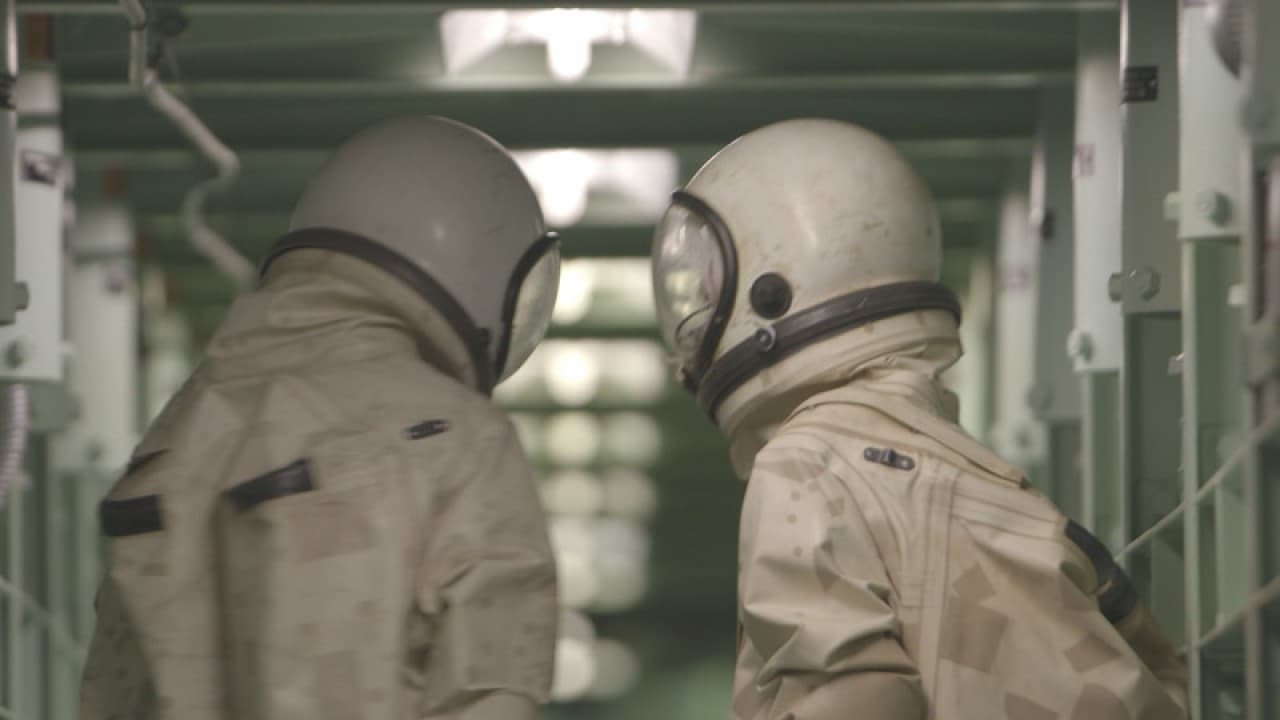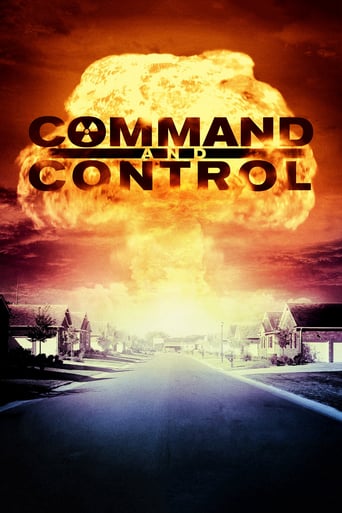



Best movie ever!
Absolutely the worst movie.
Absolutely brilliant
This is a dark and sometimes deeply uncomfortable drama
View MoreThere are some excellent detailed reviews available, so I'll just say that this is the chilling story of the 1980 near detonation of a nuclear warhead near Little Rock, Arkansas. The story is told in riveting fashion with many excellent eyewitness interviews. It is a stark reminder that the possibility of nuclear devastation is still with us, and the unpredictability of the human factors.
View MoreFrom the violations at the Indian Point nuclear power plant in New York to the dumping of nuclear waste just above the High Tide water line in San Diego to the radiation-releasing sink-hole in Washington State, the state of nuclear power in this company ain't so good (nor has it EVER been). There ARE some things, it seems, that Man just wasn't meant to f--k around with. COMMAND AND CONTROL is yet another piece of damning evidence: When scientists "testing" Atomic bombs believed that detonating such a device might kill everything on the face of the Earth... "they did the test, anyway." Is it any wonder that the Military is the largest user of fossil fuels (and, hence, the biggest contributor to Global Warming)? According to this documentary, "the only victims (of nuclear power) so far have been Americans." (With the VERY notable exception of the Japanese you-know-when...) The LISTS of accidents we see here are chilling. "The weapons were nowhere near as safe as everyone had assumed." That only a single life was lost in the Arkansas accident is nothing short of a Miracle. And the recent revelation that a HOLE has, in fact, been blown through the outer atmosphere of this planet as a direct result of nuclear "testing" may well foreshadow the Epitaph at the end of BENEATH THE PLANET OF THE APES: "In one of the countless billions of galaxies in the universe lies a medium-sized star- and one of its satellites, a green and insignificant planet, is now Dead..."
View MoreThe message of Robert Kenner's documentary Command and Control is crisp and scary. Atomic weapons are man-made machines. Man-made machines sooner or later break. A very serious accident, or even atomic apocalypse is only a matter of time. Actually a very serious accident did happen in 1980 at a nuclear missile in Arkansas, when the area around, the continent and maybe the whole world was close to a disaster maybe similar in proportions to the one that happened in Chernobyl in Ukraine (than part of the Soviet Union) a few years later.I liked the low-key documentary style of this production. The authors restrained from commenting too much (although there are a few punch lines) and let the facts speak. It is amazing how much filmed material was available if we are taking into account the classified nature of the events that took place. We can also draw some conclusions, this being mostly left to us, viewers. At the end of the day the safety systems in place worked, but the wrong decisions of the human factors did not lack either. What was different from the incident in the Soviet Union besides the very existence and quality of the safety equipment was also the fact that the decisions were made at a relative low level, and eventually the right decisions prevailed. Heroism was there, at least one precious life was lost, and several people remained with physical and psychological traumas, not to speak about the imposed silence about the events. For these people the film is an act of recovery and rehabilitation which seems to be well deserved.One more thought could not escape me when seeing this film - how young the heroes of this story were. The safety of the nuclear devices was put in the hands of very young people in uniform, who were only a few years before just kids. Many of the members of the emergency teams were also very young. Maybe one day a film needs to be made about those kids, or men and women who have been so recently kids to whom we trust not only the manipulation of deadly weapons, but the very existence of the planet and of life on it.
View MoreYou won't find much about the 1980 Damascus Titan Missile Explosion on Wikipedia. It was one of those minor Cold War mishaps that barely made it beyond the local news. A young airman was doing routine maintenance at an Arkansas ICBM site. He didn't fully appreciate the difference between a ratchet and a socket wrench (who knew there was a difference?) and accidentally dropped the heavy steel head of his tool into the silo of an aged Titan II missile. The head punctured the skin of the missile, resulting in a fuel leak and, a few hours later, an explosion that wrecked the silo, killing one airman and wounding 21 others. Fortunately, the Titan's nine-megaton thermonuclear warhead, the most powerful US bomb then in existence, did not explode. This low-key but powerful documentary examines the chain of events that led to the accident and, more pertinently, looks at the wider significance of what did and didn't happen. There are interviews with the surviving site crew and some impressive re-enactments of the sequence of events, so realistic that at first you think it must be authentic historical footage. The investigative journalist Eric Schlosser, author of an acclaimed book about the Damascus accident, had a large hand in this production and appears periodically in the film. Knowing little about Damascus, you might be tempted to chalk it up as a calamity avoided because the safety systems in place actually worked. By the time the film is over, you won't be so dismissive. The most serious nuclear threat to the US at this time (because it occurred on a frequent daily basis, and had little to do with international tensions) was from accidents within its own arsenal. (A similar situation must surely have prevailed in the Soviet Union.) Are we safer now, given that there are far fewer nukes deployed and Command and Control organizations have learned from past experiences? The documentary has a clear answer, and it's probably not the one we hoped for.
View More